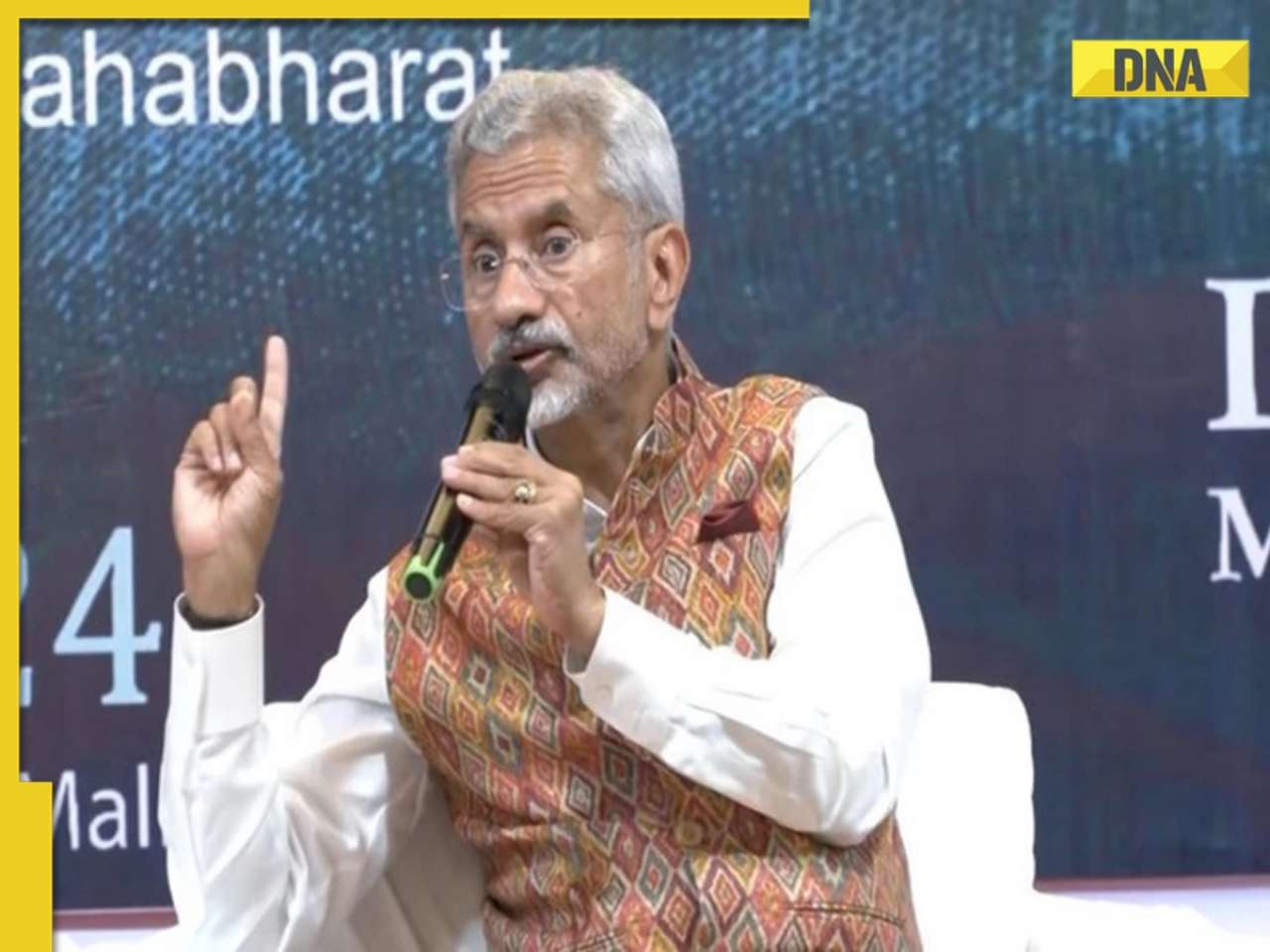But before you throw a party for your ‘promotion’, it might be a good idea to look a little closely at your increment letter.
Companies are using hyped designations to lop off 2-10% from an employee’s pay package
MUMBAI: So you’ve been promoted. And you can’t help but wear the smug look around office. But before you throw a party for your ‘promotion’, it might be a good idea to look a little closely at your increment letter. Has the company given you a higher designation without increasing your responsibilities or your pay package significantly? If the answer is yes, you’ve entered the world of innovative HR practices.
Your promotion could be a two-pronged strategic lever used by your employer to slash costs and curb attrition. According to human resources professionals and recruitment consultants, companies are now offering bigger designations to employees to slow down their pay hikes by 2-5% or even 10% in some cases.
Overall, companies save as much as 20% on their employee costs and also check attrition because people tend to stay longer when given a higher designation, says Rajesh AR, vice-president of staffing firm TeamLease Services Pvt Ltd.
The practice is more common in mid-tier companies that can’t afford hefty pay hikes. “We call them ‘new economy designations’. A fancy designation such as relationship manager, knowledge manager and the likes makes visiting cards weightier. It serves as an ego boost for an employee because people can’t flaunt their salaries but they can their positions,” says Rajesh.
Organisations trade pay hikes for higher designations subtly, through negotiations with the employees concerned, says Kris Lakshmikanth, founder CEO and managing director of Bangalore-based recruitment firm HeadHunter India Pvt Ltd. “A salesman’s job is the same as that of a sales executive. But the term ‘executive’ carries more weight in the society and so, organisations have been using it freely,” says Lakshmikanth.
Consider the example of Mumbai professional Pooja Sharma. Earlier, this 24-year-old public relations professional’s visiting cards showed her as a ‘consultant’. Last week, they were replaced by new ones that describe her as a ‘senior account executive’.
The designation jump hasn’t translated into a big pay jump for Sharma. Earlier, she would get Rs 25,000 monthly and now Rs 28,500. Sharma wanted at least Rs 30,000 after the appraisals but Rs 1,500 monthly proved to be the price for a fancier profile. “Senior account executive sounds better than consultant, and this helps as I have to exchange cards with people,” she says.
Rs 1,500 for Sharma means a big cost benefit for her company.
Marcel Parkar, chairman of HR solutions provider Ikya Human Capital Solutions, reveals that companies save as much as 20-30% if they use this strategy on several employees. He adds that the lines between designations are often blurred and no clear-cut job profile matches the reworked designation.
“Promotions nowadays don’t really mean a change in responsibility. It doesn’t matter to the company whether they have 10 people working as senior executives or 20.”
The tool helps in lateral recruitments too. Instead of giving the 30% pay hike that candidates demand, companies offer a healthier designation and a 27-28% hike. High attrition rates are giving the trend further traction. Aadith Vikram, the managing director of online recruitment site WhereIsMyBoss.com, observes that junior and mid-level employees chase fancy designations. “Different sectors, from banking to insurance to retail to information technology, are facing attrition rates of between 14% and 25%. In addition, there is limited supply of talented people. Employees stick with companies if they get promotions,” Vikram adds.
Expectedly, companies are unwilling to admit to this practice. Bharti AXA Life Insurance’s HR director Priya Ranjan claims the practice is more common in fields that require client interaction, for example, customer service.
Some like Sucharita Palepu, head of talent management group at Satyam Computer Services, see this as a way of constantly creating excitement around a job profile. “People won’t mind a lower salary if the role offered is good,” Palepu says. Both Ranjan and Palepu, however, assert that their organisations don’t indulge in the practice.
So how can an employee differentiate between a real promotion and a strategic promotion? The solution lies in not getting overly optimistic about a new designation. “See if the new designation clearly includes tasks in addition to those in the earlier job profile,” says Vikram.
g_priyanka@dnaindia.net
![submenu-img]() Meet IIT-JEE topper with AIR 1, son of government school teachers, he went on to pursue...
Meet IIT-JEE topper with AIR 1, son of government school teachers, he went on to pursue...![submenu-img]() Salman Khan house firing case: One more Lawrence Bishnoi gang member arrested by Mumbai Police
Salman Khan house firing case: One more Lawrence Bishnoi gang member arrested by Mumbai Police ![submenu-img]() Driver caught on camera fleeing after running over female toll plaza staff on Delhi-Meerut expressway
Driver caught on camera fleeing after running over female toll plaza staff on Delhi-Meerut expressway![submenu-img]() 'If you come and do something here...': EAM S Jaishankar on India's 'message' against terrorism
'If you come and do something here...': EAM S Jaishankar on India's 'message' against terrorism![submenu-img]() TN 11th Result 2024: TNDGE Tamil Nadu HSE (+1) result declared, direct link here
TN 11th Result 2024: TNDGE Tamil Nadu HSE (+1) result declared, direct link here![submenu-img]() Meet IIT-JEE topper with AIR 1, son of government school teachers, he went on to pursue...
Meet IIT-JEE topper with AIR 1, son of government school teachers, he went on to pursue...![submenu-img]() TN 11th Result 2024: TNDGE Tamil Nadu HSE (+1) result declared, direct link here
TN 11th Result 2024: TNDGE Tamil Nadu HSE (+1) result declared, direct link here![submenu-img]() Meet doctor who cracked UPSC exam with AIR 9 but didn’t became IAS due to…
Meet doctor who cracked UPSC exam with AIR 9 but didn’t became IAS due to…![submenu-img]() TN 11th Result 2024 to be declared today; know how to check
TN 11th Result 2024 to be declared today; know how to check![submenu-img]() Meet man who worked as coolie, studied from railway's WiFi, then cracked UPSC exam to become IAS, secured AIR...
Meet man who worked as coolie, studied from railway's WiFi, then cracked UPSC exam to become IAS, secured AIR...![submenu-img]() DNA Verified: Is CAA an anti-Muslim law? Centre terms news report as 'misleading'
DNA Verified: Is CAA an anti-Muslim law? Centre terms news report as 'misleading'![submenu-img]() DNA Verified: Lok Sabha Elections 2024 to be held on April 19? Know truth behind viral message
DNA Verified: Lok Sabha Elections 2024 to be held on April 19? Know truth behind viral message![submenu-img]() DNA Verified: Modi govt giving students free laptops under 'One Student One Laptop' scheme? Know truth here
DNA Verified: Modi govt giving students free laptops under 'One Student One Laptop' scheme? Know truth here![submenu-img]() DNA Verified: Shah Rukh Khan denies reports of his role in release of India's naval officers from Qatar
DNA Verified: Shah Rukh Khan denies reports of his role in release of India's naval officers from Qatar![submenu-img]() DNA Verified: Is govt providing Rs 1.6 lakh benefit to girls under PM Ladli Laxmi Yojana? Know truth
DNA Verified: Is govt providing Rs 1.6 lakh benefit to girls under PM Ladli Laxmi Yojana? Know truth![submenu-img]() Remember Harsh Lunia? Just Mohabbat child star, here's how former actor looks now, his wife is Bollywood's popular...
Remember Harsh Lunia? Just Mohabbat child star, here's how former actor looks now, his wife is Bollywood's popular...![submenu-img]() Mother's Day 2024: Bollywood supermoms who balance motherhood, acting, and run multi-crore businesses
Mother's Day 2024: Bollywood supermoms who balance motherhood, acting, and run multi-crore businesses![submenu-img]() Rocky Aur Rani's Golu aka Anjali Anand shocks fans with drastic weight loss without gym, says fitness secret is...
Rocky Aur Rani's Golu aka Anjali Anand shocks fans with drastic weight loss without gym, says fitness secret is...![submenu-img]() In pics: Ram Charan gets mobbed by fans during his visit to Pithapuram for ‘indirect campaign’ for uncle Pawan Kalyan
In pics: Ram Charan gets mobbed by fans during his visit to Pithapuram for ‘indirect campaign’ for uncle Pawan Kalyan![submenu-img]() Streaming This Week: Yodha, Aavesham, Murder In Mahim, Undekhi season 3, latest OTT releases to binge-watch
Streaming This Week: Yodha, Aavesham, Murder In Mahim, Undekhi season 3, latest OTT releases to binge-watch![submenu-img]() Haryana Political Crisis: Will 3 independent MLAs support withdrawal impact the present Nayab Saini led-BJP government?
Haryana Political Crisis: Will 3 independent MLAs support withdrawal impact the present Nayab Saini led-BJP government?![submenu-img]() DNA Explainer: Why Harvey Weinstein's rape conviction was overturned, will beleaguered Hollywood mogul get out of jail?
DNA Explainer: Why Harvey Weinstein's rape conviction was overturned, will beleaguered Hollywood mogul get out of jail?![submenu-img]() What is inheritance tax?
What is inheritance tax?![submenu-img]() DNA Explainer: What is cloud seeding which is blamed for wreaking havoc in Dubai?
DNA Explainer: What is cloud seeding which is blamed for wreaking havoc in Dubai?![submenu-img]() DNA Explainer: What is Israel's Arrow-3 defence system used to intercept Iran's missile attack?
DNA Explainer: What is Israel's Arrow-3 defence system used to intercept Iran's missile attack?![submenu-img]() Salman Khan house firing case: One more Lawrence Bishnoi gang member arrested by Mumbai Police
Salman Khan house firing case: One more Lawrence Bishnoi gang member arrested by Mumbai Police ![submenu-img]() Meet actress, who got rejected for her looks, had no hit for 15 years; later beat Alia, Deepika, Katrina at box office
Meet actress, who got rejected for her looks, had no hit for 15 years; later beat Alia, Deepika, Katrina at box office![submenu-img]() Abdu Rozik breaks silence on his wedding announcement being called ‘publicity stunt’: ‘The whole world is…’
Abdu Rozik breaks silence on his wedding announcement being called ‘publicity stunt’: ‘The whole world is…’![submenu-img]() Meet actress who made debut with Salman Khan, had super flop career, then got TB, now lives in chawl, runs..
Meet actress who made debut with Salman Khan, had super flop career, then got TB, now lives in chawl, runs..![submenu-img]() Meet actress who worked with Naseeruddin Shah, sister of popular models, is now getting trolled on social media for..
Meet actress who worked with Naseeruddin Shah, sister of popular models, is now getting trolled on social media for..![submenu-img]() Driver caught on camera fleeing after running over female toll plaza staff on Delhi-Meerut expressway
Driver caught on camera fleeing after running over female toll plaza staff on Delhi-Meerut expressway![submenu-img]() Delhi man takes 200 flights in 110 days, steals lakhs worth of jewelry from passengers
Delhi man takes 200 flights in 110 days, steals lakhs worth of jewelry from passengers![submenu-img]() Viral video: Man makes paratha with 'diesel', internet reacts
Viral video: Man makes paratha with 'diesel', internet reacts![submenu-img]() Viral video of 'black jalebi' leaves internet in shock; netizens say 'hey bhagwan...'
Viral video of 'black jalebi' leaves internet in shock; netizens say 'hey bhagwan...'![submenu-img]() Real-life Bambi and Thumper? Adorable deer and rabbit video melts hearts online
Real-life Bambi and Thumper? Adorable deer and rabbit video melts hearts online
























































)
)
)
)
)
)